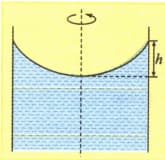Chittaranjan Dasgupta and Asok Kumar Das Solutions for Chapter: Fluid Dynamics, Exercise 1: EXERCISE
Chittaranjan Dasgupta Physics Solutions for Exercise - Chittaranjan Dasgupta and Asok Kumar Das Solutions for Chapter: Fluid Dynamics, Exercise 1: EXERCISE
Attempt the practice questions on Chapter 14: Fluid Dynamics, Exercise 1: EXERCISE with hints and solutions to strengthen your understanding. A Text Book of PHYSICS PART I : CLASS 11 solutions are prepared by Experienced Embibe Experts.
Questions from Chittaranjan Dasgupta and Asok Kumar Das Solutions for Chapter: Fluid Dynamics, Exercise 1: EXERCISE with Hints & Solutions
If a ball of steel (density ) attains a terminal velocity of when falling in a tank of water (coefficient of viscosity ) water then its terminal velocity in glycerine would be nearly?
A spherical solid ball of volume is made of a material of density . It is falling through a liquid of density . [Assume that the liquid applies a viscous force on the ball that is proportional to the square of its speed , i.e. ]. The terminal speed of the ball is
A cylindrical vessel of height kept filled upto the brim. It has four holes which are respectively at heights and from the horizontal floor. The tank is placed on that horizontal floor. The water falling at the maximum horizontal distance from the vessel comes from
A liquid is kept in a cylindrical vessel which is rotated about its axis. The liquid rises at the sides, Fig. . If the radius of the vessel is and the speed of rotation is , the difference in the height of the liquid at the centre of the vessel and its side is

A metal plate of area rests on a layer of oil thick. A tangential force of is applied on it to move it with a constant velocity of . The coefficient of viscosity of the liquid is
A liquid flows through a pipe of non-uniform crosssection. If and are the cross-sectional areas of the pipe at two points, the ratio of velocities of the liquid at these points will be
Water is flowing through a very narrow tube. The velocity of water below which the flow remains a streamline flow is known as
Water is filled in a cylindrical container to a height of . There is an orifice on the side of the container at a height from the base of the container. The ratio of the cross-sectional area of the orifice and the beaker is . The square of the speed of the liquid coming out from the orifice is
